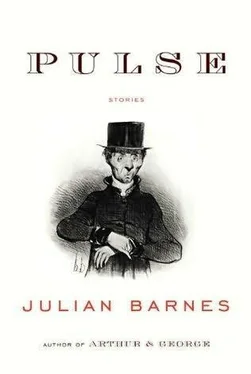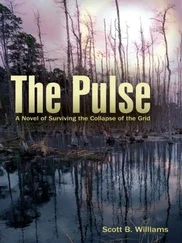Apparently I had a difficult birth. Perhaps that’s why there’s only me; though I’ve never asked. We don’t do gynaecology in our family. Or religion, because we don’t have any. We do politics a bit, but rarely argue, since we think the parties are as bad as one another. Dad may be a bit more right wing than Mum, but essentially we believe in self-reliance, helping others, and not expecting the state to look after us from cradle to grave. We pay our taxes and our pension contributions and have life assurance; we use the National Health Service and give to charity when we can. We’re ordinary, sensible middle-class people.
And without Mum we wouldn’t be any of it. Dad had a bit of a drink problem when I was little, but Mum sorted him out and turned him into a purely social drinker. I was classified as ‘disruptive’ at school, but Mum sorted me out with patience and love, while making it clear exactly which lines I couldn’t cross. I expect she did the same with Dad. She organises us. She still has a bit of her Lancashire accent left, but we don’t do that silly north-south stuff in our family, not even as a joke. I also think it’s different when there’s only one child, because there aren’t two natural teams, kids and adults. There are just the three of you, and though I might have been more coddled, I also learnt from an earlier age to live in an adult world, because that’s the only game in town. I may be wrong about this. If you asked Janice if she thought I was fully grown up, I can imagine the answer.
So my mother pulls a face and my father frowns. They walk on until the contents of the concrete bin become clearer: a curving slope of purply-red muck. My mother – and I am guessing here, though her vocabulary is familiar to me – now says something like,
‘Pretty whiffy.’
My father can see what my mother’s referring to: a pile of marc. That’s the name, apparently, for what’s left after grapes have been crushed – the discarded skins and stalks and pips and so on. My parents know about this sort of thing; in their non-fanatical way they are keen on their food and drink. That’s why they were on this farm track in the first place – looking for a few bottles of that year’s wine to take home. I’m not indifferent to food and drink, just regard them more pragmatically. I know which foods are healthiest and also most energy-providing. And I know precisely how much alcohol relaxes me and gives me a good time, and how much is too much. Jake, who is both fitter and more hedonistic than me, once told me what they say about martinis: ‘One’s perfect. Two’s too many. And three’s not enough.’ Except in my case: I once ordered a martini – and half was just about right.
So my father approaches this great heap of detritus, stops about ten feet away and consciously sniffs. Nothing. Five feet – still nothing. Only when he puts his nose almost into the marc does anything register. Even so, it’s just a faint version of the pungent smell his eyes – and his wife – tell him exists. My father’s response is more one of curiosity than alarm. For the rest of the holiday he monitors the ways in which his nose lets him down. Benzene fumes when filling up the car – nothing. A double espresso in a village bar – nothing. Flowers cascading over a crumbly wall – nothing. The half-inch of wine a hovering waiter has poured into his glass – nothing. Soap, shampoo – nothing. Deodorant – nothing. That was the oddest thing of all, Dad told me: to be putting on deodorant and not be able to smell something you were putting on to stop something else you also couldn’t smell.
They agreed there wasn’t much point in doing anything until they got home. Mum expected she’d have to badger Dad to call the health centre. The two of them shared a reluctance to bother the doctor unless it was serious. But each thought something that happened to the other was more serious than if it was happening to them. Hence the necessity to badger. Eventually, one might simply ring up and book an appointment in the other’s name.
This time, my father did it for himself. I asked what had decided him. He paused. ‘Well, if you want to know, son, it was when I realised I couldn’t smell your mum.’
‘You mean, her perfume?’
‘No, not her perfume. Her skin. Her… self.’
There was a fond, absent look in his eye as he said it. I didn’t find this at all embarrassing. He was just a man at ease with what he felt about his wife. There are some parents who make a display of marital emotion in front of their children: look at us, see how young we still are, how dashing, aren’t we just the picture? My parents weren’t like this at all. And I envied them the more for it, that they didn’t need to show off.
When you run in our group, there’s the leader, Jake, who sets the pace and also makes sure no one falls too far behind. At the front are the heavy guys who keep their heads down, check their watches and heart monitors, and talk, if at all, about hydration levels and how many calories they’ve done. At the back are those who aren’t fit enough to run and talk at the same time. And in between are the rest of us, who like both the exercise and the chat. But there’s a rule: no one’s allowed to monopolise anyone else, not even if they’re going out together. So one Friday evening, I checked my stride to fall in with Janice, our newest recruit. Her running gear had clearly not been bought at the local shop where the rest of us go; it was looser cut, and silkier, and had needless bits of piping on it.
‘So what brings you to our town?’
‘Been here two years, actually.’
‘So what brought you to our town?’
She ran a few yards. ‘Boyfriend.’ Ah. Then a few more yards. ‘Ex-boyfriend.’ Ah, better – maybe she’s running him off. But I didn’t like to probe. Anyway, there’s another rule in the group: keep it light when you’re running. No British foreign policy, and no big emotional stuff either. Sometimes it makes us sound like a bunch of hairdressers, but it’s a useful rule.
‘Only a couple more k.’
‘So be it.’
‘Fancy a drink afterwards?’
She looked across and up at me. ‘So be it,’ she repeated with a grin.
She was easy to talk to, mainly because I did all the listening. And more of the looking too. She was slim, neat, black-haired, well manicured, with a slightly off-centre tweak to her nose that I found instantly sexy. She was in motion a lot, gesturing, flicking at her hair, looking away, looking back; I found this exhilarating. She told me she worked in London as PA to the section head of a women’s magazine I’d just about heard of.
‘Do you get lots of free samples?’
She stopped and looked at me; I didn’t know her well enough to tell if she was really put out or just pretending. ‘I can’t believe that’s the first question you ask me about my job.’
It had seemed reasonable enough to me. ‘OK,’ I replied, ‘Let’s pretend I’ve already asked you fourteen acceptable questions about your job. Question 15: do you get lots of free samples?’
She laughed. ‘Do you always do things in the wrong order?’
‘Only if it makes someone laugh,’ I replied.
My parents were plump, and good advertisements for plumpness. They took little exercise, and their response to having a big lunch was to lie down and sleep it off. They treated my fitness programme as a youthful eccentricity: the only time they reacted as if I was fifteen rather than thirty. In their view, serious exercise was appropriate only for people like soldiers, firemen and the police. Once, up in London, they had found themselves outside one of those gyms which let you glimpse some of the activities within. It’s meant to be alluring, but my parents were horrified.
Читать дальше











